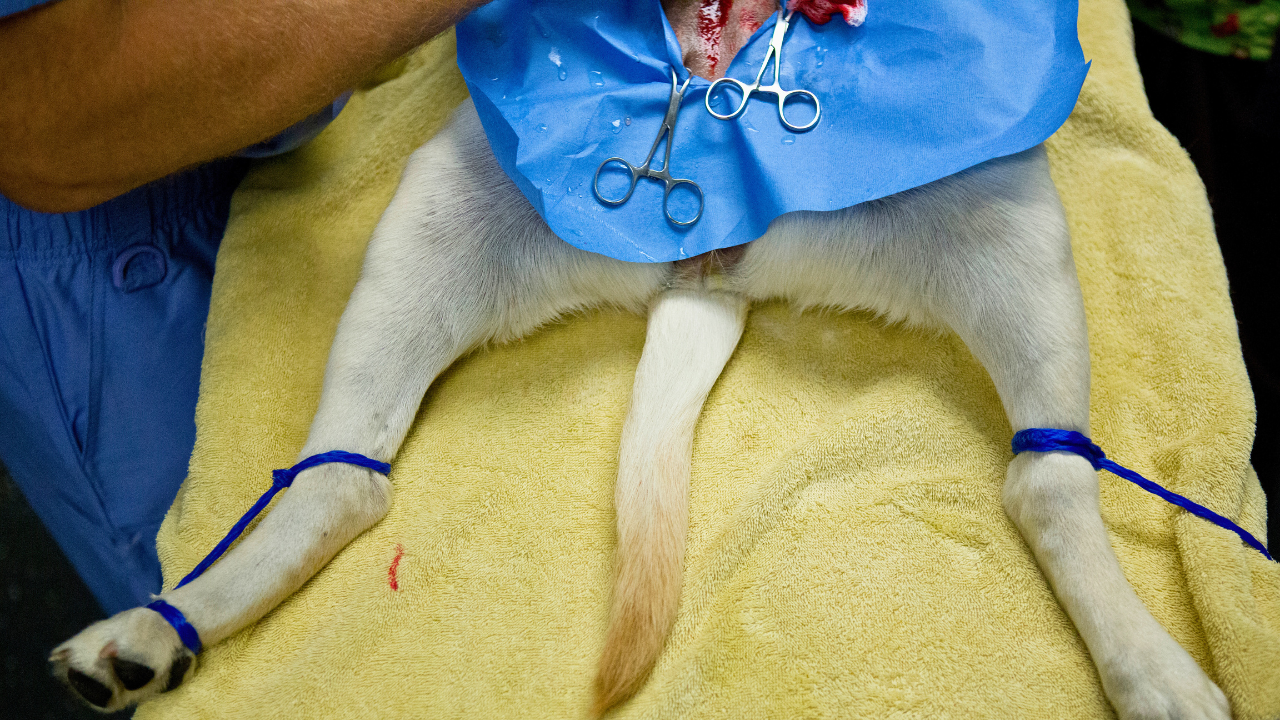When Is the Right Time to Spay or Neuter Your Dog?

So when should you be spaying/neutering your dog?
The debate is on.
But here is something of which NO debate is needed…
A Complete All Natural Dog Supplement can help keep your dog healthy, and may even PREVENT disease
An easy way to do that…
Dr Jones’ ULTIMATE Canine Health Formula


Do We Need a Paradigm Shift in Canine Neutering?
The Evolution of Spay and Neuter Practices
From the 19th century, with the rise of urbanization and pet ownership, spaying and neutering began as solutions to avoid the inconveniences of a pet’s heat cycle in homes. By the 1950s, New York City addressed its pet overpopulation through neutering. As compliance waned in the 1960s, humane groups mandated neutering before pet adoption. The practice gained substantial backing in 1993 when the American Veterinary Medical Association endorsed early neutering to curb overpopulation.
Standard Veterinary Practice
Today, neutering young dogs between 6 and 9 months is standard in the U.S., contrasting sharply with European practices like Norway, where neutering without a valid medical reason is illegal. This difference has prompted U.S. veterinarians, including myself, to question the effects of early neutering. What are the clinical effects of removing these hormones? How early is too early? Do the benefits of spaying and castrating outweigh the risks?
Benefits of Spaying and Neutering
Spaying before the first heat significantly reduces the risk of mammary tumors and reproductive tract tumors. It also prevents inconveniences like bleeding and unwanted pregnancies. Castration eliminates risks like testicular cancer, reduces prostate issues, and decreases behaviors such as urine marking and roaming, which can lead to injuries or shorter lifespans.
The Unintended Consequences
Despite the benefits, spaying and castrating can lead to significant health issues:
- Surgical Risks: Including a 6% complication rate with potential for infection and anesthesia reactions.
- Urinary Incontinence: Spaying increases the risk, especially when performed before 3 months.
- Hormonal Imbalances: Can lead to hypothyroidism, vaccine reactions, and behavioral changes like increased aggression or cognitive decline.
- Obesity: More common in neutered pets, bringing additional health risks.
- Orthopedic Issues: Early neutering can affect bone growth, predisposing pets to joint problems and ACL injuries.
- Increased Cancer Risk: Neutered pets show higher incidences of cancers like lymphoma and osteosarcoma.
Insights from Recent Studies
A landmark 10-year study by UC Davis researchers has highlighted breed-specific risks associated with neutering. For example, neutering Rottweilers before 1 year of age drastically increases their risk of osteosarcoma. This study suggests that the timing of neutering should be carefully considered, dependent on the breed and individual health risks.
A Call to Rethink Neutering Practices
Given these insights, it’s crucial that dog owners discuss neutering options with their veterinarians rather than following societal norms. Each decision should be tailored to the dog’s breed, health, and lifestyle needs.
If I were to have a puppy, I would consider waiting until 2 years of age before deciding on spay or neuter procedures. Encouraging natural growth and development is essential, and supplements like Dr. Jones’ ULTIMATE Canine Health Formula can support overall health and potentially prevent diseases.
The discussion around the best practices for neutering is evolving among mainstream veterinarians. It’s time to consider a paradigm shift towards more individualized care, ensuring healthier lives for our pets.


Thank you for this information!
Your the best thank you
It will help if you link the actual studies you based your info on. I have read this study and its important to note that with some breeds, spaying / neutering so late might actually have negative effects too. This is very breed spesific and needs to be concindered by Pet Parents before deciding when and if to neuter. If I had to choose between my dog getting arthritis or cancer one day, I know which one I will be choosing…
Hello, Dee,
Could you please provide me with the link to the actual study? I certainly would like to know when to neuter my Cockapoo. Thanks very much!
Susan